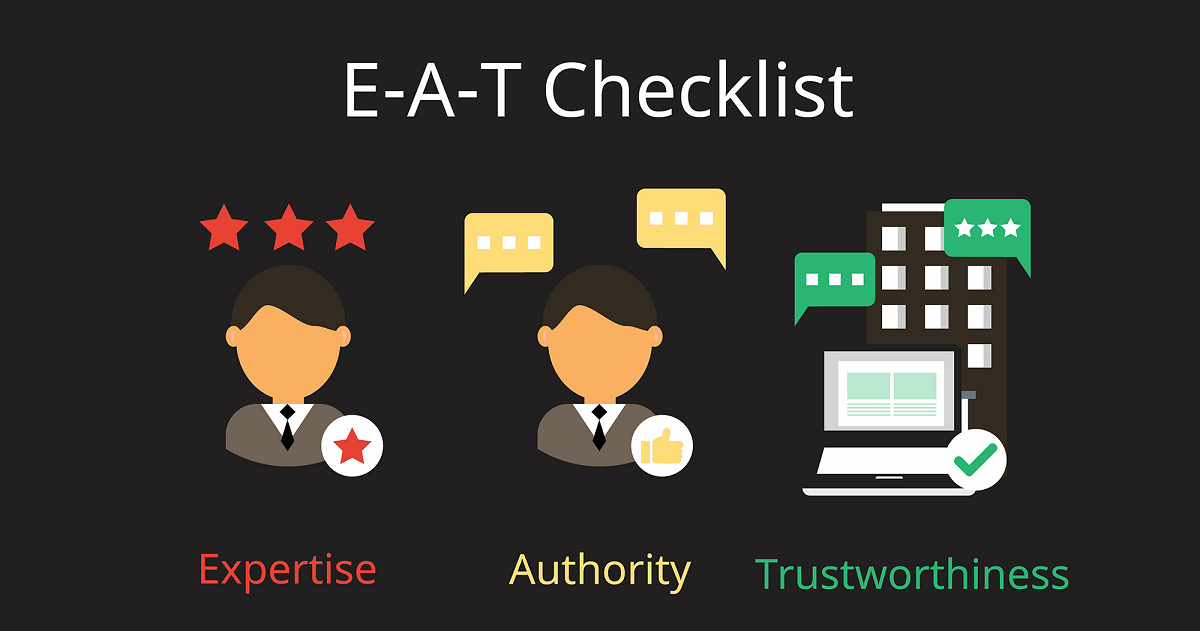BLOG
The Art Of Local Keyword Optimization

In today's digital age, businesses increasingly rely on the internet to connect with local customers. Whether you're a small local shop or a regional service provider, harnessing the potential of local search engine optimization (SEO) is crucial for staying competitive in your market.
At the heart of effective local SEO lies the art of local keyword optimization—a strategic approach to selecting and integrating relevant search terms that resonate with your target audience and geographical location.
In this guide, we'll delve into the nuances of local keyword optimization, exploring how to identify the right keywords, seamlessly incorporate them into your content, and track their performance to drive meaningful results. Whether aiming to boost your visibility in local search results, attract more foot traffic to your physical store, or enhance your online presence within specific geographic areas, mastering the art of local keyword optimization is critical to standing out in today's crowded digital landscape.
Understanding Local Keywords
Understanding local keywords is crucial for businesses that attract customers within specific geographic areas. These keywords are tailored to local search intent, reflecting the preferences and needs of users in a particular location. Local keywords can include terms related to location names, neighborhoods, landmarks, and other geographical identifiers, as well as specific services or products offered in those areas.
By understanding the nuances of local keywords, businesses can optimize their online presence to align with local search queries, increasing their visibility and relevance to potential customers in their target locations.
In today's digital age, businesses increasingly rely on the internet to connect with local customers. Whether you're a small local shop or a regional service provider, harnessing the potential of local search engine optimization (SEO) is crucial for staying competitive in your market.
At the heart of effective local SEO lies the art of local keyword optimization—a strategic approach to selecting and integrating relevant search terms that resonate with your target audience and geographical location.
In this guide, we'll delve into the nuances of local keyword optimization, exploring how to identify the right keywords, seamlessly incorporate them into your content, and track their performance to drive meaningful results. Whether aiming to boost your visibility in local search results, attract more foot traffic to your physical store, or enhance your online presence within specific geographic areas, mastering the art of local keyword optimization is critical to standing out in today's crowded digital landscape.
The Importance Of Understanding Local Search Intent And User Behavior
- Relevance: By understanding local search intent, businesses can tailor their content and keywords to match what users seek in their specific geographic area. This ensures the content is relevant to local audiences, increasing the chances of attracting qualified leads and customers.
- User Engagement: When businesses align their content with local search intent, they are more likely to attract users actively seeking products or services in their area. This leads to higher engagement rates, such as longer time spent on the site, more page views, and lower bounce rates, indicating that users find the content valuable and relevant to their needs.
- Competitive Advantage: Understanding local search intent allows businesses to identify niche opportunities and gaps in the market that they can capitalize on. By addressing specific local needs and preferences, businesses can differentiate themselves from competitors and attract a loyal local customer base.
- Conversion Optimization: Local search intent often indicates high purchase intent, as users often look for businesses or services near them that they intend to engage with. By optimizing for local search intent, businesses can improve their chances of converting these local searches into actual customers or clients.
- Improved ROI: Targeting local search intent with optimized keywords can lead to higher ROI than broader, non-localized strategies. This is because local keywords often have lower competition and can result in more targeted traffic, leading to higher conversion rates and better returns on investment in SEO efforts.
Researching Local Keywords
Local keyword research is crucial in optimizing your website for local search. By understanding the terms your target audience uses when searching for products or services in your area, you can better tailor your content and improve your chances of ranking higher in local search results. Here are some key points to consider:
- Tools and Methods: Utilize tools like Google Keyword Planner, Google Trends, and local SEO tools (e.g., Moz Local, SEMrush) to discover relevant local search terms. These tools can provide insights into search volume, competition level, and keyword variations specific to your target location.
- Identifying Relevant Keywords: To narrow your keyword research, define your target geographic area and audience. Use location modifiers (e.g., city names, neighborhood names) and your primary keywords to create targeted local search phrases.
- Analyzing Competitor Keywords: Study your competitors' websites and local listings to identify keywords they are targeting successfully. This can give you valuable insights into popular local search terms and areas where you can differentiate your business.
- Local Search Trends: Stay updated with local search trends and seasonality that may impact keyword popularity. For example, specific events, holidays, or trends in your area may lead to changes in search behavior that you can capitalize on with relevant keywords.
- User Intent: Understand the intent behind local search queries. Are users looking for specific services, products, or information? Tailor your keyword research to align with your target audience's intent to increase your content's relevance.
- Keyword Variations: Explore different variations of your primary keywords to capture a broader range of search queries. Long-tail keywords, which are longer and more specific phrases, can often be more effective in attracting local traffic with higher conversion potential.
- Localized Content: Consider creating localized content that addresses specific needs or interests of your local audience. This could include local events, news, or community initiatives relevant to your business and target location.
By conducting thorough local keyword research, you can uncover valuable insights that will guide your content creation and optimization efforts, ultimately improving your visibility in local search results.
Implementing Local Keywords
On-Page Optimization:
- Meta Tags: Include local keywords in meta titles and descriptions to improve click-through rates and relevance in search results.
- Heading Tags: Use H1, H2, and H3 tags to structure content and incorporate local keywords where relevant.
- Content Body: Create high-quality, informative content that naturally incorporates local keywords without keyword stuffing. Focus on providing value to the reader.
Optimizing Local Landing Pages:
- Targeted Content: Customize landing page content to align with specific local keywords and search intent. Highlight location-specific details like addresses, phone numbers, and service areas.
- Clear Call-to-Action (CTA): Include a clear CTA that encourages visitors to act, such as contacting the business or purchasing.
Business Listings and Directories:
- Google My Business (GMB): Optimize your GMB profile with accurate business information, including location, hours of operation, and relevant keywords. Encourage customers to leave reviews to improve local visibility.
- Local Directories: Ensure consistent NAP (Name, Address, Phone Number) across all local directories and listings. Use relevant keywords in business descriptions where appropriate.
Social Media Optimization:
- Profile Optimization: Use local keywords in your social media profiles and bios to increase visibility in social media search results.
- Content Sharing: Share content that emphasizes local expertise and includes local keywords. Engage with local communities to boost visibility and credibility.
By implementing these strategies, businesses can enhance their online presence and attract local customers searching for their products or services.
Tracking And Analyzing Results
Tracking the performance of your local keyword optimization efforts is crucial for understanding what's working and what needs improvement. Here are some critical steps to effectively track and analyze your results:
- Keyword Ranking Reports: Regularly check your keyword rankings in search engine results pages (SERPs) to see how your targeted local keywords perform. Tools like Google Search Console, SEMrush, or Ahrefs can provide insights into your keyword rankings over time.
- Organic Traffic Analysis: Use tools like Google Analytics to track organic traffic to your website and identify which pages drive the most traffic. Look for trends in organic traffic growth or decline that correlate with your keyword optimization efforts.
- User Engagement Metrics: Monitor user engagement metrics such as click-through rates (CTR), bounce rates, and time on page for pages optimized with local keywords. This can indicate how well your content is resonating with your local audience.
- Conversion Tracking: Measure conversions from organic search traffic, such as form submissions, phone calls, or online purchases. This helps you understand the direct impact of your local keyword optimization on your business goals.
- Local Search Insights: Platforms like Google My Business and other local directories provide insights into how users find your business online. Monitor these insights to see which keywords are driving local visibility and engagement.
- Competitor Analysis: Keep an eye on your competitors' keyword rankings and online presence in local search results. This can provide valuable insights into new keyword opportunities or strategies to improve rankings.
- Data Interpretation: Analyze the data collected from these sources to identify patterns and trends. Look for correlations between specific keyword optimizations and rankings, traffic, or conversion changes.
- Iterative Optimization: Make data-driven decisions to refine your local keyword optimization strategy based on your analysis. This could involve tweaking your keyword targeting, optimizing content further, or exploring new keyword opportunities based on emerging trends or user behavior.
By consistently tracking and analyzing your local keyword optimization efforts, you can refine your strategy to improve your local search visibility and drive more relevant traffic to your business.
Advanced Strategies For Local Keyword Optimization
- Schema Markup for Local Businesses:
- Implementing schema markup (structured data) on your website to provide search engines with specific information about your business, such as location, contact details, business hours, and reviews.
- Use LocalBusiness schema to mark up your business information, which can enhance your visibility in local search results and increase the chances of appearing in featured snippets.
- Leveraging Local Reviews and Testimonials:
- Encouraging customers to leave reviews on platforms like Google My Business, Yelp, and industry-specific review sites.
- Incorporating user-generated content, such as testimonials and case studies, on your website and in your content to showcase your expertise and credibility in your local market.
- Responding to reviews promptly and professionally to build trust with potential customers and improve your online reputation.
- Optimizing for Voice Search and Mobile Users:
- Recognizing the growing importance of voice search and optimizing your content for conversational queries.
- Creating FAQ sections on your website that address common questions related to your business and local area, using natural language that aligns with how people speak.
- Ensuring your website is mobile-friendly and loads quickly, as mobile-friendliness is a critical factor in local search rankings.
- Hyperlocal Targeting and Geotargeted Content:
- Target hyperlocal keywords highly specific to your local area, such as neighborhood names, landmarks, or local events.
- Creating content tailored to your local audience's interests and needs, including local news, events, and community initiatives.
- Use geotargeting in your online advertising campaigns to reach audiences in specific locations and drive foot traffic to your physical location.
- Utilizing Local Data and Insights:
- Analyzing local search trends and user behavior data to identify emerging local keywords and topics relevant to your business.
- Using tools like Google Trends, Google Maps, and social media insights to understand what local users are searching for and how they engage with local businesses online.
- Incorporating local data and insights into your content strategy to create relevant and timely content that resonates with your local audience.
Conclusion
Mastering the art of local keyword optimization is crucial for businesses aiming to enhance their visibility in local searches. By understanding your target audience and their search intent, conducting thorough keyword research, and strategically integrating local keywords into your content, you can significantly improve your chances of ranking higher in local search results.
Remember to focus on relevance and user intent when selecting and optimizing local keywords. Tailoring your content to address specific local queries and providing valuable information that meets the needs of local searchers can help you attract the right audience and drive more qualified traffic to your website.











